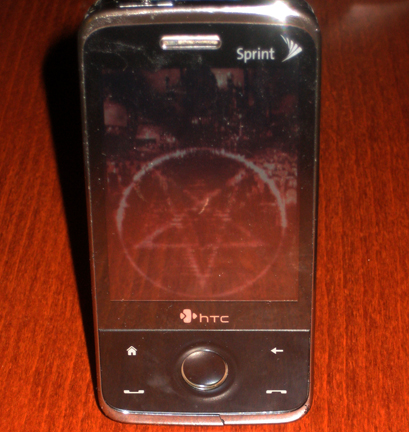I’m very selective (on the verge of Luddite) in my embrace of online tools and technology – somewhat unfortunate, given my line of work, as the road to freelancer success can be somewhat more smoothly paved for those of us who hurl ourselves vigorously into the blogosphere or Twitterverse whatever hackneyed ‘social media’ + ‘topographic delineation’ construct you may prefer. There are many reasons I fundamentally dislike Facebook and Twitter, but it’s often hard for me to express them lucidly without descending into visceral “you’re a big doody-head” level arguments.
I am, in fact, on Facebook. Furthermore, I go on every single morning, primarily because I’ve learned the hard way that it’s the only way to find out whether people I know are getting hired, fired, married, divorced, pregnant, exiled, executed or canonized. And it has that little birthday box on the right. But I would say that only a vanishingly small percentage of my friends know how to use Facebook the way I would want to use it – posting interesting, thoughtful articles and provoking stimulating discussion with people I wish I knew. Otherwise, it’s like a cross between the world’s longest no-cover open-mic night and the comments section of YouTube. Likewise with Twitter – I am not personally on Twitter, but I do use it to, for example, get ‘behind the scenes’ information from scientific meetings or product launch events. But then I have to roam through endless repetitive retweets and sad, sad attempts at “wit”. And god save us all from #hashtaghumor.
This is why the idea of ‘social search’ scares me – even though tech pundits seem to love the concept so. So few people are looking for exactly what I want, and almost none of my friends does exactly what I do, and everybody’s idea of what’s ‘important’ and ‘interesting’ is miles apart from everbody else’s, with the convergence of this messy Venn diagram unfortunately landing squarely on lolcats and the Harlem Shake. If this kind of ‘digital democracy’ determines what comes up on top of my list, it’s going to take me ten times as long to find anything I need – if I ever find it at all.
And this, in turn, is why I love, love, love Google Reader. Love it.
I’m a Google partisan anyway – Android phone, Chrome browser, Google as homepage – but there is no single page I spend more time on. In the last five years, I have put together a magnificently manicured collection of feeds for both business and pleasure. For my work as a journalist, it’s critical – I can’t even begin to count how many times I’ve started my day stumbling across a story or two that is directly relevant to an assignment I’m working on. My other option is to go to each journal homepage, science blog and science news website every day and try to figure out what’s been updated. Open about three or six dozen browser tabs, because otherwise I can’t keep track of what I haven’t read yet, and hope I remember to ever look at them again. Then, when it’s time to take a break and goof off, let’s just slap a few dozen more tabs up there, because I can’t be spending all day goofing off, but there’s so much new stuff on Cracked and AV Club… Google Reader is my salvation; an hour or two every morning, and maybe a half hour in the afternoon, and I can economically blast through information that would take me eight hours or more to find otherwise. And of course, I have it on my Android phone, so I can never be far from my precious, precious feeds.
But now that’s done. As the nerds among you – and who else is visiting my website, anyway? – know, Google has decided that I should instead find my information by stumbling across whatever articles the five people I know on Google + are reading. Oh, or I suppose I could let Facebook and Twitter show me what to read. Probably something about cats. Cats are funny.
I think this headline from The Guardian puts it better than anybody else I’ve seen so far: “Killing Google Reader is like killing the bees.” This is a tool for primary productivity. It’s like when you hear all the wonderful shiny news about how the new media will kill off the dinosaur tree-killing old media. Yes, there’s lots and lots of room for complaint about newspapers and magazines, and there’s a lot to be said for the fast upload, fast update means of information dissemination… except that probably 75% of all of the news being dissected and re-analyzed online was first broken by reporters and editors working at ‘old media’ institutions. You know – the bees.
Maybe it’s a touch melodramatic – the RSS format isn’t dead, after all. But without the momentum of a unified Google Reader community behind it, who knows how long that will last. This will almost certainly be the last time I ever write these words, but perhaps Hitler put it best:
UPDATED: Oh, and if you’d also like to join in the quixotic battle against a massive global corporation dizzy with its own power, please sign this petition at Change.org: “Keep Google Reader Running.” It’s almost up to 150,000 signatures…
